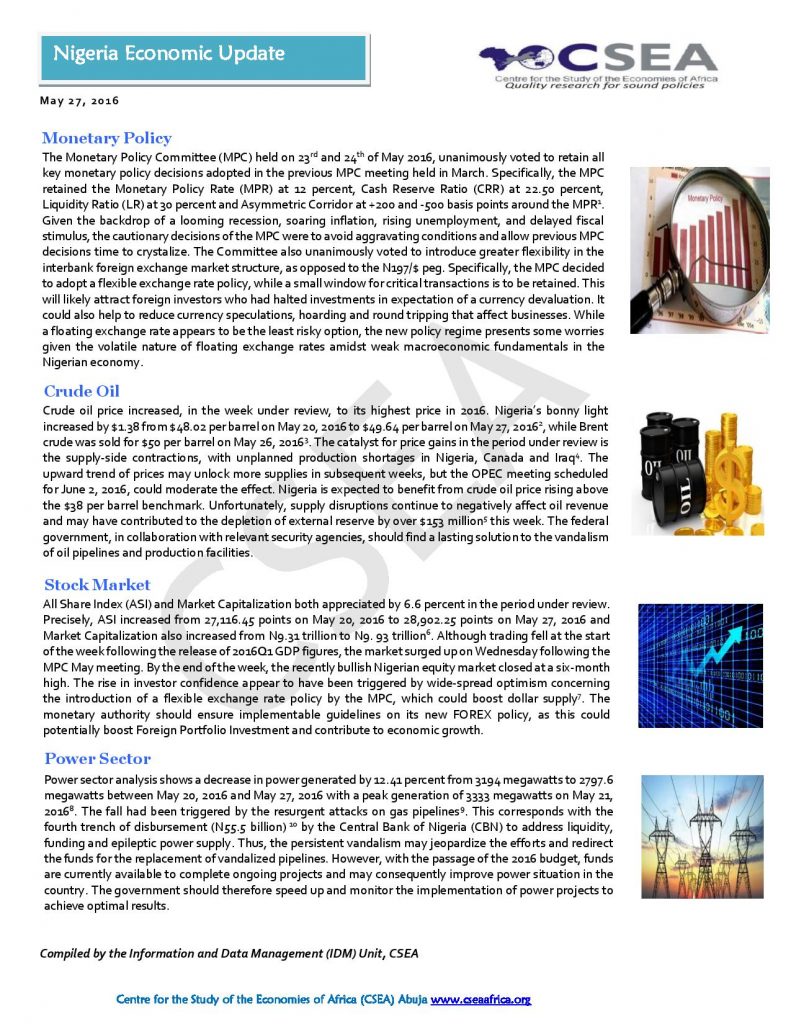Macroeconomic Report & Economic Updates

June 3, 2016
Nigeria Economic Update (Issue 24)
Crude
oil price increased, in the week under review, to its highest price in 2016. Nigerias
bonny light increased by $1.38 from $48.02 per barrel on May 20, 2016 to $49.64
per barrel on May 27, 2016, while Brent crude was sold for $50 per
barrel on May 26, 2016. The catalyst for price gains in the period
under review is the supply-side contractions, with unplanned production shortages
in Nigeria, Canada and Iraq. The upward trend of prices may unlock
more supplies in subsequent weeks, but the OPEC meeting scheduled for June 2,
2016, could moderate the effect. Nigeria is expected to benefit from crude oil
price rising above the $38 per barrel benchmark. Unfortunately, supply
disruptions continue to negatively affect oil revenue and may have contributed
to the depletion of external reserve by over $153 millionthis
week. The federal government, in collaboration with relevant security agencies,
should find a lasting solution to the vandalism of oil pipelines and production
facilities.
